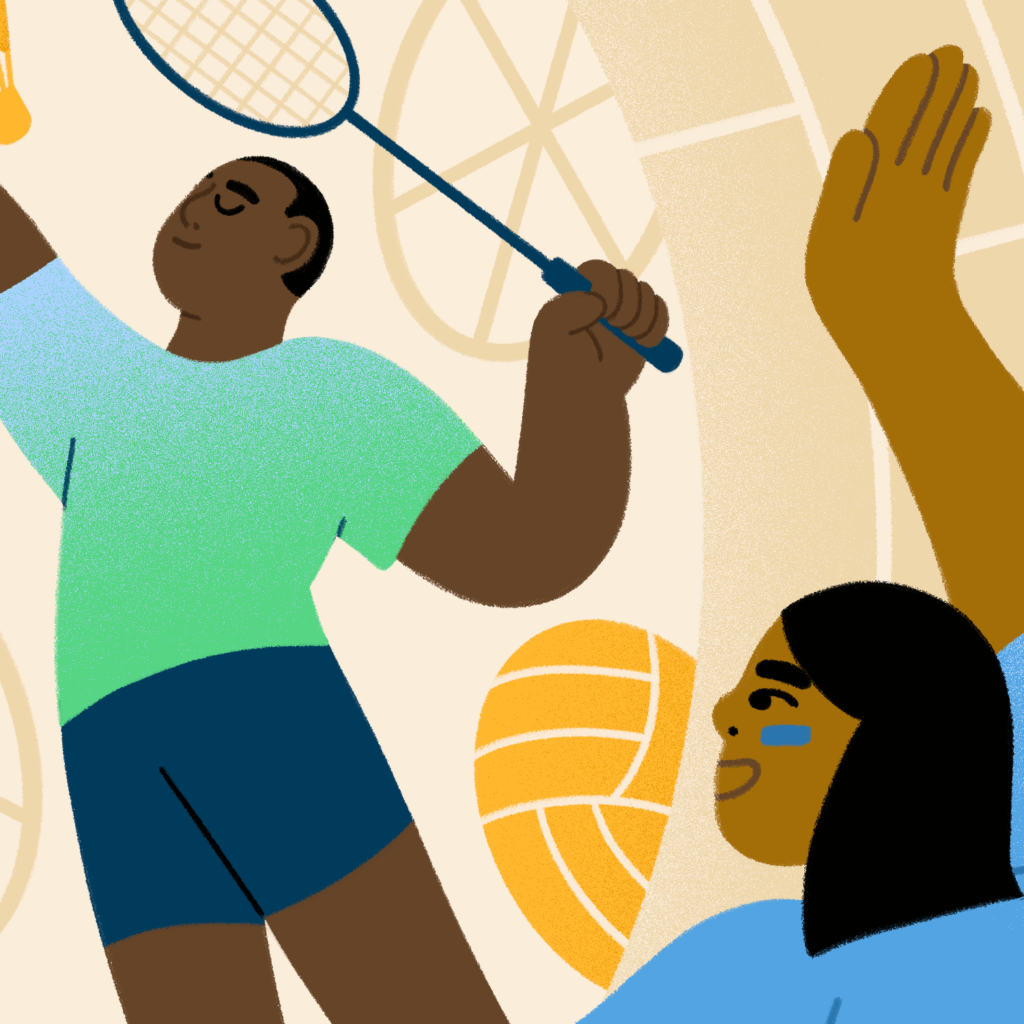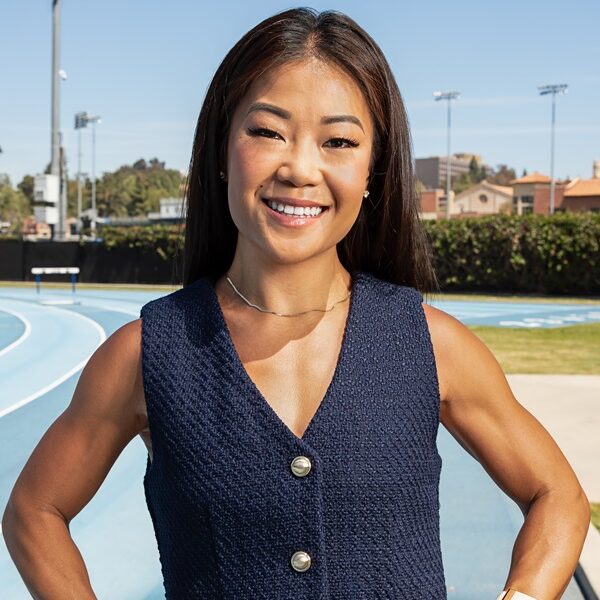By: UCLA Newsroom
View the original article on UCLA Newsroom.
The power of language — every language — gives us wings. Take flight with UCLA’s American Sign Language instructors Benjamin Lewis and Jennifer Marfino and interpreter Mariam Janvelyan.
UCLA is honoring Disability Pride Month in July with a look back at the many ways the campus supports the disabled community. This month also marks the 35th anniversary of the Americans with Disabilities Act, which was signed into law on July 26, 1990, to prohibit disability-based discrimination.
In 2023, UCLA extended a 16-year-old disability studies minor by launching the first disability studies major at a public university in California. The campus also offers American Sign Language courses and adaptive recreation programs — and has hosted a panel with alumni explaining how they’ve applied their disability studies education to their careers.
Here are just a few of the stories featured on Newsroom:
More online resources needed to help Californians with disabilities make critical decisions

A California law designed to protect the autonomy of individuals with disabilities to make their own decisions may fall short of its intended goals due to insufficient online resources, according to a new report from the UCLA Center for Health Policy Research.
Supported decision-making enables individuals with disabilities to select a trusted person or persons (often a family member or friend) to aid them in making important decisions about things like their health care and finances. The law (AB 1663) took effect Jan. 1, 2023, and it provides an alternative to guardianship (called conservatorship in California), which places full decision-making authority for an individual in someone else’s hands.
Yet when UCLA researchers reviewed online resources about supported decision-making, they found some important gaps in the kinds of available information and tools. More than 60% of the resources were targeted toward adults 18–64 years old, with fewer resources designed for older adults (65 years and older) or younger people with disabilities.
“Imagine someone else deciding for you where you get to live, how to manage your money, or what medical care you need or want,” said Kristen Choi, an associate professor at the UCLA School of Nursing and UCLA Fielding School of Public Health.
Autism advocate Russell Lehmann champions neurodiversity and disability rights
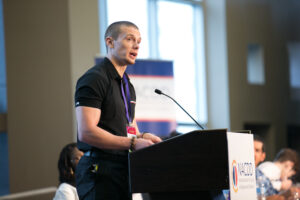
Drawing on the solace he finds in poetry, Russell Lehmann calls his life’s journey “the road less traveled.” For Lehmann, the international disability rights advocate at the UCLA Tarjan Center, that road has been a challenging one.
Lehmann — who was diagnosed with autism at the age of 12 — grappled with obsessive-compulsive disorder and phobias which led him to drop out of school in the fifth grade, and subsequently, to spend five long weeks in a psychiatric unit in the spring of 2003, where he was first diagnosed.
In January, Lehmann became a Bruin after being invited to participate in a groundbreaking course on autism and neurodiversity within the UCLA Division of Undergraduate Education’s disability studies program, building on his track record as an internationally recognized speaker who spreads awareness about the intersection of disabilities and mental health.
“For me, autism is a disability, but it’s not a flaw,” Lehmann said. “Disabilities are part of the human condition and to be able to share this message at UCLA is really special to me.”
Disability studies alumni panel brings advocacy, access to the forefront
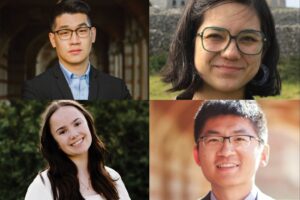
From clinical psychology to arts and entertainment, education and beyond, disability studies is a field that touches nearly every career path. On April 9, three UCLA alumni shared how they’ve applied their disability studies education to their careers in a virtual, student-led panel.
Josh Yen-Ho Chou, Quinn O’Connor and Zhe Zhang discussed how they are advancing accessibility, representation and equity across arts, education and academic research. These Bruins are using their education to challenge societal norms and create inclusive spaces.
The panel, moderated by event organizer and current disability studies student Annemarie Lawrence, offered a unique opportunity to engage with alumni who are pushing boundaries and making an impact.
“Personally, exploring disability studies and getting involved with the program was the best decision I have made during my time at UCLA,” Lawrence said in a Q&A. “The professors, faculty and administrative staff are nothing less than amazing and are so dedicated to making sure each and every student in the program succeeds.”
From ankle injury to solutions champion for visible and invisible disabilities

When UCLA’s first-of-its-kind disability studies major launched in the fall quarter of 2023, Catarina Gerges was quick to enroll. Already minoring in disability studies and majoring in neuroscience, she had just enough room in her schedule to fulfill all credit requirements and still graduate with two majors a year ahead of schedule. In June 2024, she was one of three students who graduated as the inaugural class of disability studies majors.
Gerges’ interest in disability studies was sparked after a roller-skating excursion during the winter quarter of her freshman year ended in a trip to the emergency room. With multiple torn ankle ligaments, her mobility was severely limited. Even with crutches and support from Bruin Access, she experienced challenges navigating UCLA’s sprawling campus, including getting from her dorm on the Hill to her classes.
“That was the first time I realized how physically inaccessible our campus was,” Gerges said. “I was a little mad at myself. It took me so long and an injury of my own to realize how UCLA, an institution that is so progressive and so well-funded, is so lacking in terms of accessibility.”
Four hands, two hearts, one mission
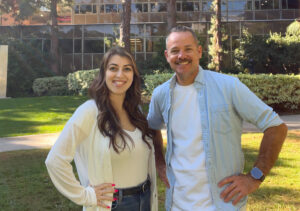
Even the greatest partnerships can get off to a rocky start.
About 10 years ago, when linguistics and psychology major Mariam Janvelyan wanted to enroll in UCLA’s already full American Sign Language course, she emailed its brand-new instructor to ask for an override.
“I said no, absolutely not, and rejected her,” Benjamin Lewis signed, with Janvelyan acting as an interpreter in a joint interview. “And apparently it was on her birthday, too. Let the record show: worst present ever.”
Luckily for them both, Janvelyan made it into the class about a year later and became not only one of Lewis’ star students, but eventually his professional colleague after she graduated. Today, Lewis, who is deaf, is UCLA’s only ASL lecturer and Janvelyan is UCLA’s only ASL interpreter, both in the department of linguistics — and together, they’ve developed an impressive course of study in close collaboration.
“In other disciplines, there might be one class with seven or eight sections, each with its own TA. For ASL here, it’s literally just us,” Janvelyan said. “We go through every single detail together and are very much in sync. It definitely helps that we’re friends, too.”
UCLA creates first disability studies major at a California public university
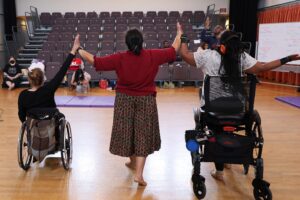
Thanks in part to the overwhelming popularity of UCLA’s 16-year-old disability studies minor, the campus launched a new disability studies interdepartmental major — the first such major at any California public university.
The new major accepted its first students in fall quarter of 2023, and two new faculty hires will expand the capacity of the program from the existing minor, formed in 2007.
While many schools across the country offer applied programs focused on rehabilitation, diagnosis and services, they tend to view disability as a problem to be fixed or repaired. These programs often ignore the ways disability is generated and reinforced by society, as well as the positive role of disability culture in creating a more inclusive society, said choreography professor Victoria Marks. She is chair of the new major and faculty director of the Dancing Disability Lab with the department of world arts and cultures/dance within the UCLA School of the Arts and Architecture.
“As an academic discipline, disability studies considers corporeal diversity, not as something to repair or fix, but as an intersectional identity that is constructed by how we shape access, how we build our cities and write our laws,” Marks said.
Adaptive recreation gives all Bruin athletes the chance to level up

Jamey Perry pivots into position to prevent her opponent from getting a clean shot at the basket, then maneuvers her upper body to grab the ball from him. As the two lock into a tug-of-war, the left wheels of Perry’s basketball wheelchair begin to lift off the ground. A split second later, both she and the chair, into which she’s firmly strapped, topple over.
She has the ball.
The other players cheer and laugh. Acting as a single team, they all glide over to help Perry up.
It’s another Tuesday evening wheelchair basketball practice for UCLA Adaptive Recreation, an athletics program for Bruins and community members with and without disabilities.
“Our main goal is to expand access to opportunities that promote physical fitness, health and wellness, increased self-esteem, and greater functional independence,” said Michael Garafola, the program’s coordinator. “We also work at educating the campus community on the lifestyles of individuals with disabilities in relation to sports and recreation.”
